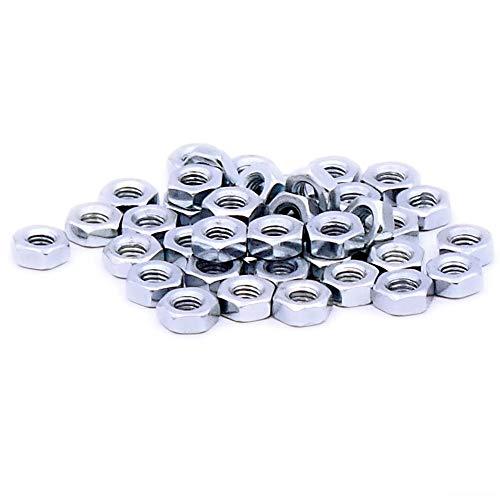Learn about Hex Nuts – Definition, Uses, and Types
Learn about Hex Nuts – Definition, Uses, and Types
.left-top {
top: 0;
left: 0;
float: left;
margin-right: 20px;
max-width: 380px;
}
.right-bottom {
float:right;
height:100%;
margin-left:15px;
}
: Understanding the Basics of Hex Nuts
When it comes to fastening two objects, nuts and bolts play a crucial role in ensuring that they are securely attached. So, what is a hex nut, and why is it a popular type of nut for mechanical fastening applications?

A hex nut, also known as a hexagon nut, is a six-sided nut that is typically made of metal and has an internal screw thread. It is designed to be used with a bolt or screw that has a corresponding thread and features a hexagonal shape that allows it to be tightened or loosened with a wrench or pliers.
Hex nuts come in a range of sizes and materials, including stainless steel, brass, and nylon. They are commonly used in construction, automotive, and industrial applications for securing machine parts, furniture, and other objects.
Here are some key features of hex nuts that you should be aware of:
1. Size and thread pitch are critical: Hex nuts come in various sizes, and choosing the proper size and thread pitch is crucial to ensure that the nut and bolt are compatible. The diameter of the hex nut must match the diameter of the bolt, and the thread pitch must also match.
2. The hex shape adds strength: The hexagonal shape of the nut provides a higher degree of torque strength when compared to other types of nuts. This shape also makes it easier to apply even pressure when tightening or loosening the nut.
3. Nylon hex nuts offer additional benefits: Nylon hex nuts have several advantages, including vibration resistance, corrosion protection, and prevention of damage to softer materials.
4. Tightening torque is important: It is important to use the correct amount of tightening torque when securing a hex nut. Over-tightening can lead to thread stripping or fractures, while under-tightening can result in loosening of the nut over time.
In conclusion, hex nuts are an essential component of mechanical fastening systems, offering strength, durability, and reliability. Understanding their basic features and proper usage is essential for achieving the desired results in mechanical applications.

